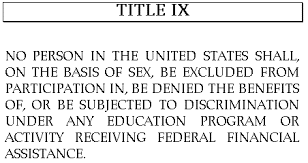After the trial court approved a class action settlement, overruling the objections of a member of the class, the class member appealed. The class member argued the notice to the class members denied them due process because the nature and timing of the settlement approval procedure set forth in the notice was unfair, and because […]
When The Agreement Is Silent On The Issue, Just As It Is With Classwide Claims, Representative Claims Are Inconsistent With Arbitration.
In a classwide wage and hour action, the court granted the defendant employer’s petition to compel arbitration, leaving it up to the arbitrator to decide whether the agreement contemplated classwide and/or representative claims arbitration, or whether only the named plaintiff’s individual claim would be resolved in the arbitration. The employer filed a petition for writ […]
Even In Brave New World Class Action, A Defendant Only Has To Pay One Time.
The company is called IntelliGender, and it manufactures a Prediction Test that indicates the gender of a fetus: green for a boy and orange for a girl. A class action alleged violations of California’s unfair competition and false advertising laws. As it appeared there would be a settlement, notice of the settlement was sent to […]
Another Creative Declaratory Relief Action…This One Concerning Who Makes A Decision, The Court Or The Arbitrator.
An employee filed a wage and hour claim. His employer filed a declaratory relief action alleging its arbitration with the employee required the employee’s wage and hour claims to be arbitrated on an individual basis rather than classwide. The employee petitioned the trial court to order the employer to submit its declaratory relief claims to […]
“No Person In The United States Shall, On The Basis Of Sex, Be Excluded From Participation In, Be Denied The Benefits Of, Or Be Subjected To Discrimination Under Any Educational Program Or Activity Receiving Federal Financial Assistance.” Title IX. [Signed into law by Pres. Nixon on June 23, 1973.]
A class action was filed against a high school alleging unlawful sex discrimination by providing female students with unequal opportunities in athletic programs, inequitable practice and competitive athletic, locker and storage facilities in violation of Title IX of the Education Amendments of 1972 [20 U.S.C. § 1681]. In opposing plaintiff’s opposition to partial summary judgment, […]
Class Action Judgment Against Auto Dealership Reversed In Part And Affirmed In Part.
This class action was brought by consumers who purchased automobiles. It was tried by the court, and judgment was entered in favor of defendant automobile dealership. The trial court awarded $1,503,084.50 to defendant in attorney fees and costs. The appellate court reversed portions of the judgment and affirmed other portions. The reversed portions included a […]
Denial Of Class Certification Motion Reversed.
In opposing class certification in a wage and hour case involving the potential of 53 class members, defendant produced 38 settlement agreements with putative class members, most of which provided they “released” defendant “from any and all liability” as well as 24 arbitration agreements with putative class members. The trial court found that a proposed […]
Trial Court Erred In Denying Motion For Class Certification.
Plaintiff filed a putative class action against Home Service on behalf of customer service managers who were not reimbursed for expenses pertaining to the work-related use of their personal cell phones. He alleged causes of action for violation of Labor Code section 2802; unfair business practices under Business and Professions Code section 17200 et seq.; declaratory relief; […]
Named Plaintiff Had No Authority To Speak For Putative Class; Extraordinary Relief Denied.
Counsel for the named plaintiff in a class action and the defendant reached a settlement and stipulated to the appointment of a temporary judge for the purpose of ruling on the motions for preliminary and final approval of the settlement. The superior court declined to appoint the temporary judge on the basis that counsel for […]
No Breach Of Confidentiality Because Plaintiff Does Not Allege Anyone Actually Read Stolen Medical Records.
A thief stole a health care provider’s computer containing medical records of about four million patients. The plaintiffs filed an action under the Confidentiality Act [Civil Code section 56.36], seeking to represent, in a class action, all of the patients whose records were stolen, with a potential award of about $4 billion against the health […]
- « Previous Page
- 1
- 2
- 3
- 4
- …
- 6
- Next Page »









